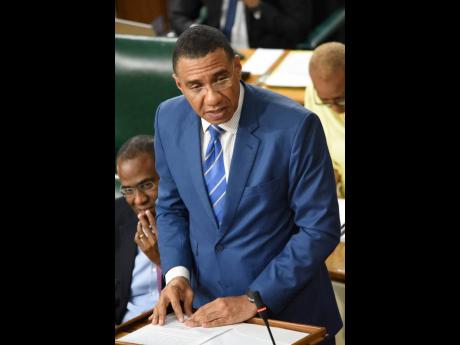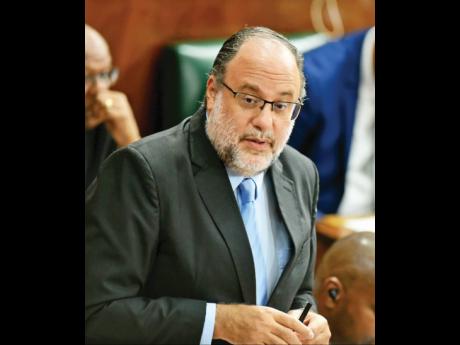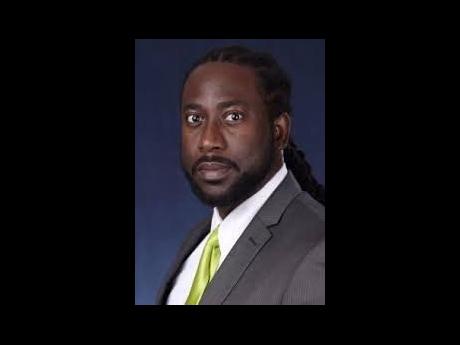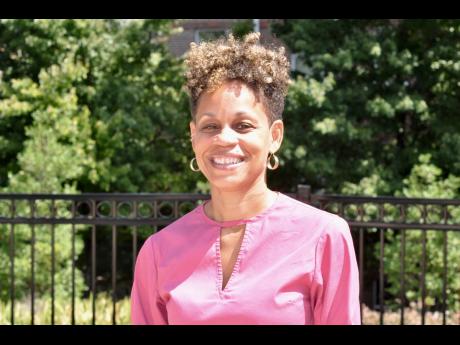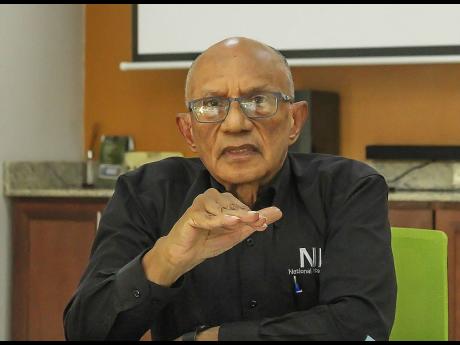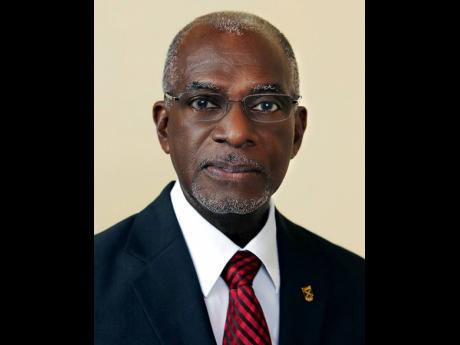Losing the people
• Approval ratings plunge for Holness, Golding in latest opinion polls • Findings more troubling for the Government than Opposition, analysts note • Increasing apathy dangerous for the nation’s democracy, says social commentator
Jamaicans appear to be losing confidence in the leaders of the top two political parties, judging from the findings of the latest Don Anderson poll. The survey was commissioned by the Opposition People’s National Party (PNP) and was conducted...
Jamaicans appear to be losing confidence in the leaders of the top two political parties, judging from the findings of the latest Don Anderson poll.
The survey was commissioned by the Opposition People’s National Party (PNP) and was conducted between February 17 and 26 among 1,002 eligible voters islandwide. The margin of error is plus or minus 3 per cent at the 95 per cent confidence level.
Prime Minister Andrew Holness’ positive (‘good’ and ‘very good’) performance rating declined substantially to a new low in recent years, slumping to 25.3 per cent from 38 per cent in July 2022, when the RJRGLEANER Communications Group commissioned that survey. This represents a falloff of 13 percentage points over seven months.
Still, Holness’ handling of his portfolio continues to top Opposition Leader Mark Golding’s, who got a 14.7 per cent approval (‘good’ and ‘very good’) rating, down from the 18 per cent in last year’s survey.
Even more telling, Holness’ negative performance rating jumped to 44 per cent in February, compared to 27 per cent last July; while there was a 10-percentage point increase in the Opposition leader’s negative performance rating, which moved from 39 per cent last year to 49 per cent seven months later.
Some 31 per cent of those surveyed rated Holness’ performance as ‘average’, compared with 35 per cent last July.
Golding’s ‘average’ performance rating moved from 43 per cent in the last survey to 36 per cent this time around.
“The performance of both leaders reflects significant changes over the last survey in July 2022,” noted pollster Don Anderson, pointing out that fieldwork from his team at Market Research Services Limited “was approved only after the most vigorous validation of the interviews was carried out”.
“The nationally representative sample we used for the survey, 1,002 persons 18 years and older across the 14 parishes, accurately represents all age groups, gender and socio-economic groups in line with their numeric importance within the population,” Anderson said.
MORE WORRYING FOR THE JLP
The findings “spell trouble” for the political leaders, analysts have argued, but more so for the governing Jamaica Labour Party (JLP). They believe it raises fresh concerns about the “leader centrism” of the current administration.
The poll results come just over a week after Minister of Local Government and Rural Development Desmond McKenzie tabled a bill in the House of Representatives for the fourth consecutive postponement of the local government elections.
The bill was passed without amendments after the Government used its majority to push it through. Opposition members subsequently staged a walkout. Days later, the Government again used its majority in the Senate to approve the bill.
Political scientist Dr Jermaine McCalpin, while cautioning that a time series poll was not conducted, said the “precipitous” increase in the prime minister’s negative rating should concern the ruling party.
He said the larger questions of the economy, crime, wage issues and the discontent in some quarters of the public sector, and the perception that the Government is not interested in holding the local government elections are leader centric issues that shape people’s perception of performance.
“The incumbent has more to give pause to because they are leading versus the party in opposition. If the party in opposition is doing poorly it’s one thing, but if the party in power is doing poorly, it’s a whole different conundrum, and I think these polls point towards that,” McCalpin told The Sunday Gleaner yesterday.
“…When you look at these figures, even though Mark Golding’s performance has not significantly improved in terms of both his favourability or the perception of his competency, it is more worrying and should be more worrying for the JLP that their leader, and by extension the Government’s perception of performance, is declining significantly,” added McCalpin, who is director of the African and African-American studies programme at New Jersey City University.
He said, on the face of the findings, the perceptions of those polled indicate that the Opposition, through its leader Golding, is doing no worse off than the expectation that it would be doing, while the governing party, through Holness, is underperforming.
‘IF THE HERO IS LOST, WHAT IS LEFT?’
“It is important to note that this is a poll of leaders, not parties. That is especially important because, in the last two election cycles, the JLP has sold itself based on the popularity of Andrew Holness,” Dr Maziki Thame noted.
Thame, a senior lecturer at the Institute for Gender and Development Studies at The University of the West Indies, Mona, noted that Holness has seen a high percentage point swing from positive to negative over a short period of time.
“This tremendous fall in popularity spells trouble for the JLP, given its orientation towards leader centrism, which mirrors the hero and the crowd political culture of Jamaica. If the hero is lost, what is left? The JLP may need to rethink its orientation, such as reducing its impulsive marketing and increasing accountability to the people,” Thame told The Sunday Gleaner.
She said Golding’s 13-percentage point swing from positive to negative, though significantly less of a loss than Holness, is important for the PNP.
Thame said, in the PNP’s political history, it has been less leader-dominant than the JLP.
“The rating of Golding will put to the test two things in the PNP: the extent to which it can lean on its internal democracy to emerge as a team, and the extent to which it can give the nation a platform for change that speaks to the problems facing the public and present an alternative to the public’s declining faith in Holness,” she said.
Thame said the overall high negative rating of both leaders, each above 40 per cent, points to a more “troubling turn in our politics” where there is a disjuncture between discontent and political action.
“This is dangerous for the nation’s democracy, as it may mean apathy is increasing,” she said.
THORNY ISSUES
National Integrity Action (NIA) Executive Director Professor Trevor Munroe told The Sunday Gleaner that the “significantly sharper” fall in performance ratings for the prime minister and the closing of the performance gap by the opposition leader, despite a decline in the latter’s rating, is related to several negative perceptions in recent times.
Among them, Munroe said, is the Government’s failure to deliver acceptable increases in wages and conditions for key sectors of the workforce, including the police, security guards and teachers.
Other issues that had negative repercussions, he said, were corruption in the Government; botched or no implementation of legislation, such as the debacle with last month’s roll-out of the Road Traffic Act; inequality in enforcement of the law, particularly against the corrupt in high places; and abuses by the security forces resulting in increased complaints from citizens.
“To arrest his decline, the PM has got to modify economic policies that are generating undoubted prosperity for the few but leaving the majority behind, and at the same time deal with perceived corruption in high places,” he said.
“Concurrently, the leader of the Opposition needs to put forward a more credible vision of the PNP’s alternative to the Government’s perceived underperformance for the majority.”
Munroe said failure of either or both leaders to improve performance will lead to increased dissatisfaction with the country’s democracy, even lower voter turnout, and more growth in public contemplation of authoritarian alternatives to democracy.

